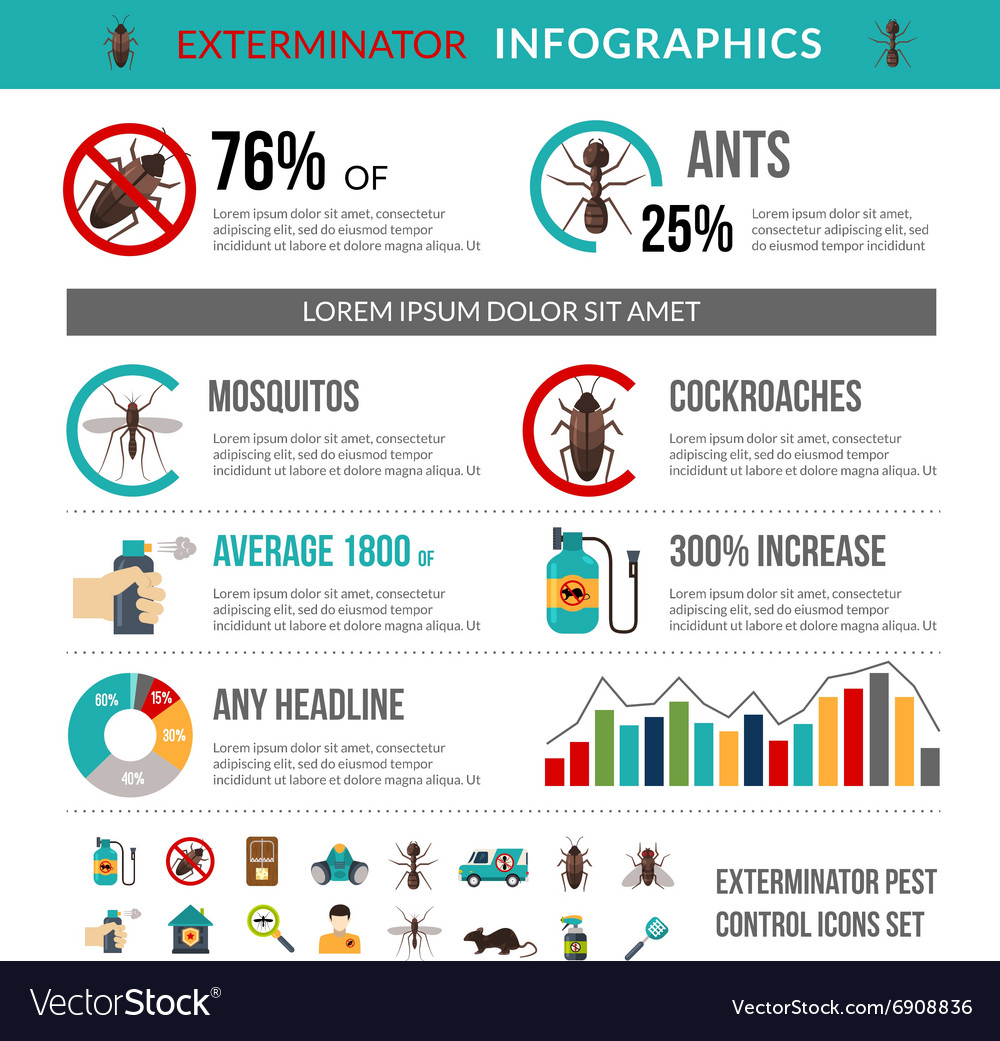Sustainable Solutions For Insect Management: An Eco-Friendly Guide
Sustainable Solutions For Insect Management: An Eco-Friendly Guide
Blog Article
https://docs.google.com/spreadsheets/d/1gu4ByGtghIofBNRz8YP_5WGzjsVBEXShijWYIWhrXN0/edit#gid=392590033 -Robertson Shapiro
They claim 'avoidance is far better than cure,' and this expression applies when it concerns pest control. You may be aware of the value of maintaining your home or company without bugs, however have you ever thought about the ecological effect of the methods used to attain this?
In this conversation, we will explore the various insect control techniques offered and their possible effects on the environment. From the use of chemical pesticides to all-natural parasite control techniques and lasting methods like incorporated parasite management, there is much to learn about the options we make and their influence on the world around us.
So, bend up and prepare to uncover the reality behind insect control approaches and their ecological repercussions.
Chemical Pesticides and Their Environmental Impact
Chemical chemicals have a significant environmental effect, which can be much better recognized by examining their use and impacts.
When https://docs.google.com/spreadsheets/d/1zA6UW_qu5mGfC4316jA-Wsi9YMNQiaBOPLqXz4M3-ms/edit#gid=2010802586 make use of chemical pesticides to control bugs, they can wind up damaging not just the targeted parasites however also helpful pests, birds, and other pets. These pesticides often linger in the setting, polluting soil, water, and air. They can additionally build up in the food chain, posturing a threat to human wellness.
In addition, chemical pesticides can interfere with ecological communities by exterminating all-natural predators of bugs, resulting in an inequality in the ecosystem. In addition, some pesticides have been linked to the decrease of pollinators like bees, which are vital for plant reproduction.
It is necessary to think about these environmental influences when thinking about parasite control methods.
Natural Insect Control Methods and Their Eco-Friendliness
All-natural insect control approaches provide an environment-friendly choice to chemical pesticides. By making use of all-natural active ingredients and approaches, you can successfully manage insects while lessening injury to the environment. Below are 4 environmentally friendly pest control approaches to think about:
1. Organic control: Introduce natural killers, such as ladybugs or nematodes, to manage pest populations naturally.
2. carpenter ant prevention : Use nets, displays, or row covers to literally protect against insects from reaching your plants.
3. Companion growing: Grow pest-repelling plants alongside your plants to prevent insects naturally. For example, planting marigolds can push back aphids and various other bugs.
4. Homemade remedies: Produce DIY parasite control solutions making use of active ingredients like vinegar, baking soft drink, or important oils. These natural remedies can help drive away bugs without unsafe chemicals.
Integrated Bug Management: A Sustainable Method
To effectively handle pest populations while reducing damage to the atmosphere, consider taking on an incorporated insect management approach, which concentrates on sustainable techniques.
Integrated Bug Management (IPM) is an all natural strategy that incorporates different pest control methods to attain lasting bug administration objectives. It aims to decrease the use of chemical pesticides and rather emphasizes prevention, surveillance, and making use of non-chemical controls.
By integrating multiple techniques, such as organic control, social methods, and mechanical approaches, IPM offers a reliable and sustainable option for parasite control.
This strategy not only lowers the adverse effect on the environment however additionally advertises the overall health and wellness of ecosystems.
Final thought
So, now you recognize the ins and outs of bug control techniques and their impact on the setting.
From the dangerous impacts of chemical pesticides to the eco-friendliness of natural insect control approaches, it's clear that we should focus on sustainable strategies like integrated pest management.
Much like a fragile environment, discovering the best equilibrium is crucial for maintaining our atmosphere and keeping parasites away.
